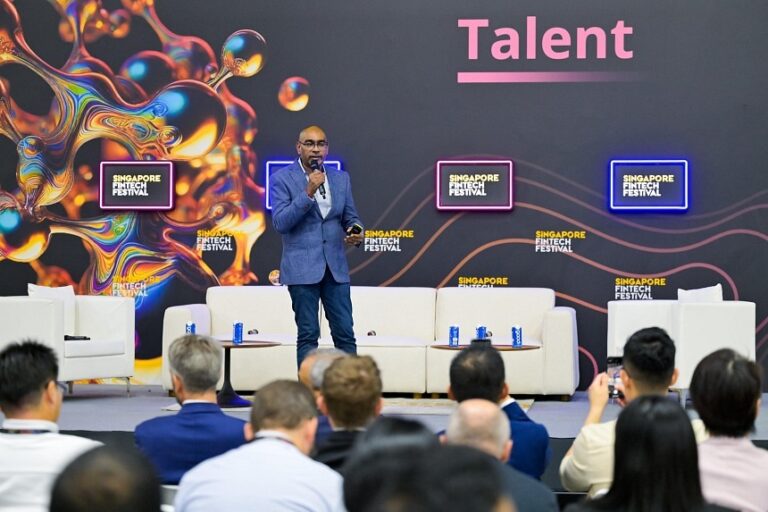SINGAPORE – A mix of technical and soft skills will become more important, several speakers at the Singapore FinTech Festival said, as recruitment slows for jobs in the fintech sector.
Financial institutions are taking a cautious approach to hiring, with 57 percent reporting a hiring freeze or planning a reduction in headcount in the tech sector, according to a Nov. 7 report, while only 22 percent plan to hire more staff.
Fintech firms appear slightly more optimistic: 27 percent said they were looking to increase their technology headcount, compared to 13 percent of banks and asset managers, notes the report from the Singapore FinTech Association (SFA) and Accenture.
Financial players are adopting flexible workforce models and continuing to outsource non-core capabilities while developing talent internally for long-term strategic roles, the study reveals.
Mr Nesan Govender, Accenture’s head of talent and organization for Southeast Asia, said artificial intelligence has made staff more efficient, disrupting key financial services roles such as engineers testing and data analysts.
Take generative AI. The SFA and Accenture noted that 94 percent of banks and asset managers, as well as 73 percent of fintechs, are exploring or have implemented generation AI in areas such as sales and marketing, as well as processing. and data management.
The report included a market-wide survey, interviews with key industry leaders, and other research. Most companies said that code generation and synthesis would be the main tasks that would be automated.
Building a career in fintech requires more than just technology skills.
Mr Govender said there is a growing demand for the “techno-functional connector” – individuals with strong technical skills in AI, as well as critical thinking, creativity and leadership abilities.
“If you understand how technology works and how people behave together, it will impact how you can drive business results,” he said.
“The technology professional of the future must therefore possess this combination of technical skills, business acumen and people skills. »
SFA president Shadab Taiyabi said employers have a role to play in developing technology. “To thrive in the evolving fintech landscape, we must invest in our workforce and expand development channels to unlock the full potential of the talent pipeline. »
Mr Alvinder Singh, who heads the Monetary Authority of Singapore’s Innovation Acceleration Office, said the education sector is catching up with the AI generation.
“Technology education is still primarily focused on traditional programming languages, as well as building applications and maintaining systems using those programming languages. These remain sacrosanct,” Mr Singh said during a panel discussion moderated by SFA chief executive Reuben Lim.

